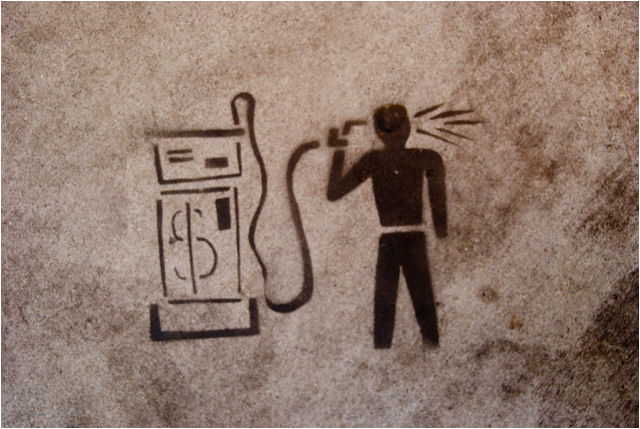The price of fuel has, I’m sure you’re aware, well and truly broken through the £1/litre barrier. Diesel is now selling for around £1.20, with unleaded slightly lower at around £1.10. So what’s the actual cause for the increase?
The finger of blame is generally pointed at the developing countries such as India and more specifically China for increasing global demand, while at the same time official sources complain of a lack of production. But is this increase in demand the whole reason that prices have increased, or are are we not being given the full story?
Over at BusinessWeek there’s an interesting article, There Is No Gas Shortage, that paints a slightly different picture.
So who’s to blame? Apparently it’s greedy stock-market speculators trying to find a more solid basis for their investments. To quote from the article:
“As for the speculators, in 2000 approximately $9 billion was invested in oil futures, while today that number has gone up to $250 billion. Now, if any publicly traded company had an additional $241 billion put into its stock in the same period, its stock would rise out of sight too—even if the company was not worth anywhere near that amount of market capitalization.”
So all of that money being ploughed into oil futures over the last few years has had nothing to do with a 500% increase in oil prices over the same period? Of course it has!
Oil reserves in the US are at their highest level in 15 years and in January demand actually dropped by 4% from the previous year. So how can the claims of low supply and high demand driving prices be justified?
Have a read of the article and see what you think, then have a look at the follow-up article for more information.
It certainly makes me angry to think that the reason I now pay so much to fill my car is that rich city investors are driving prices higher in their attempts to make themselves even richer. Well, that and the extortionate amount of fuel tax we pay here in the UK, but that’s another story.
